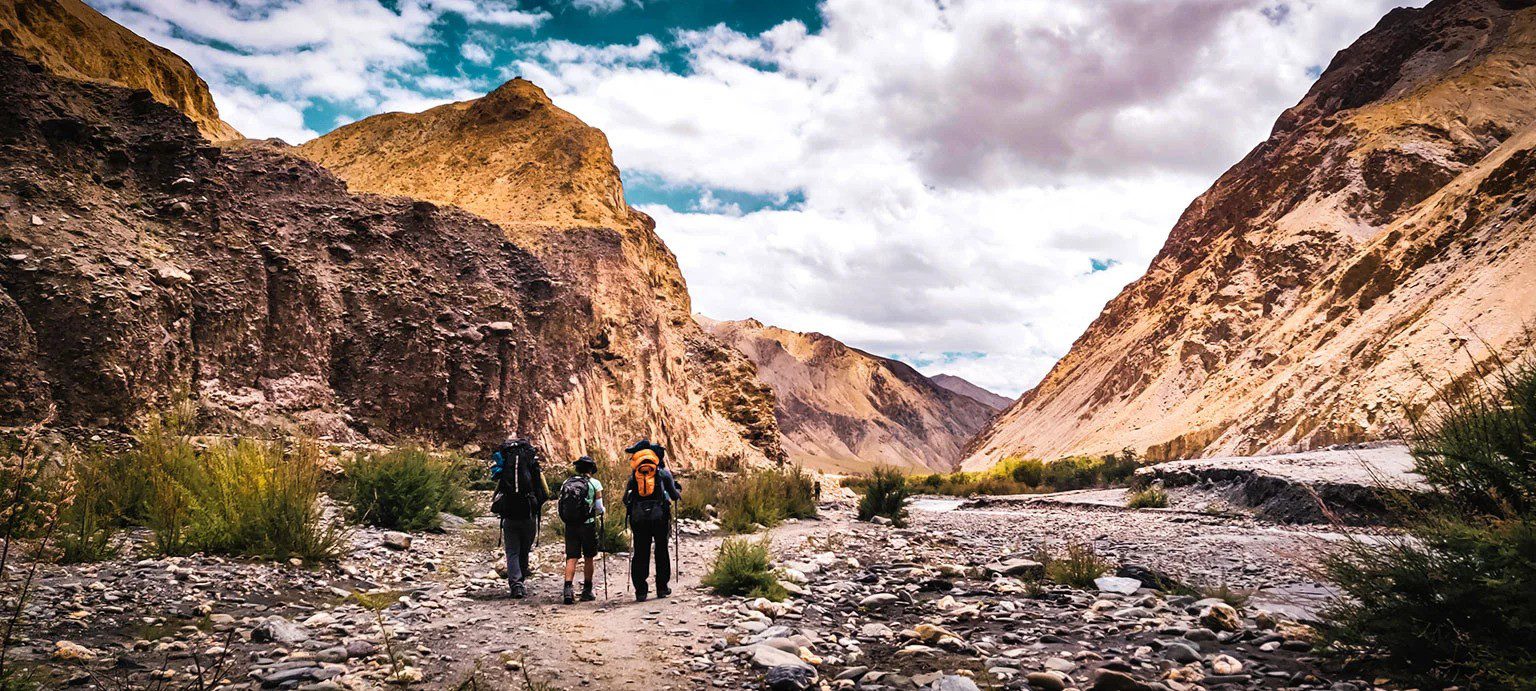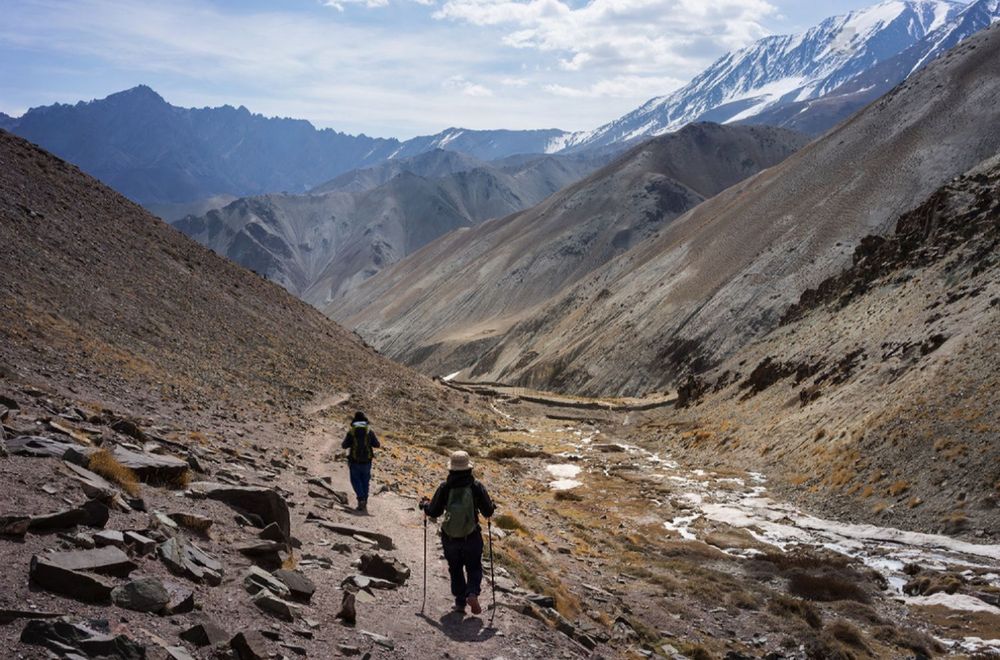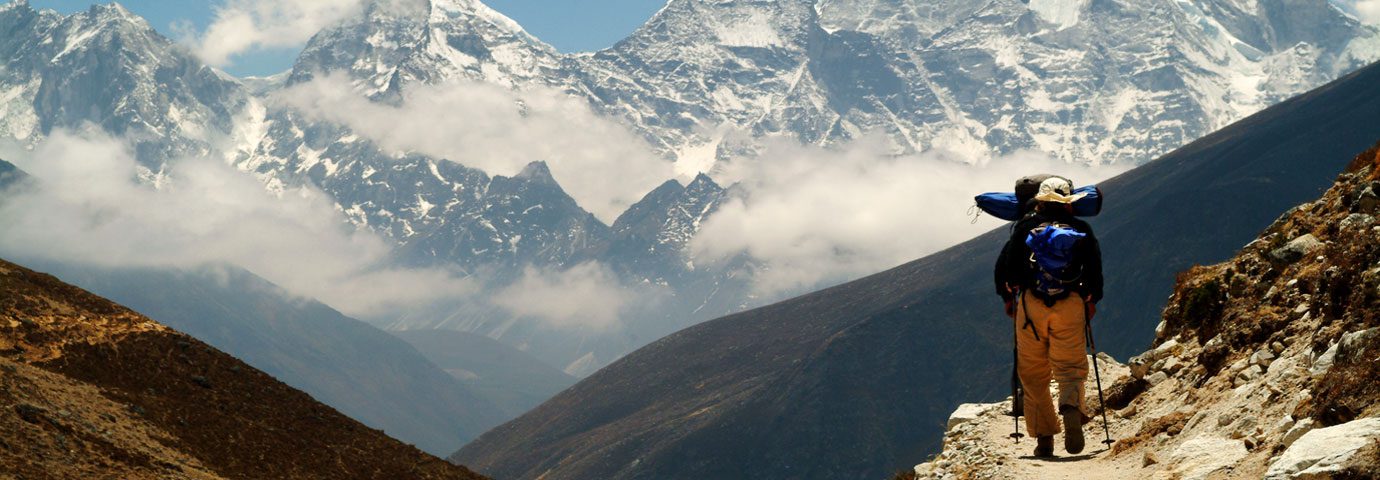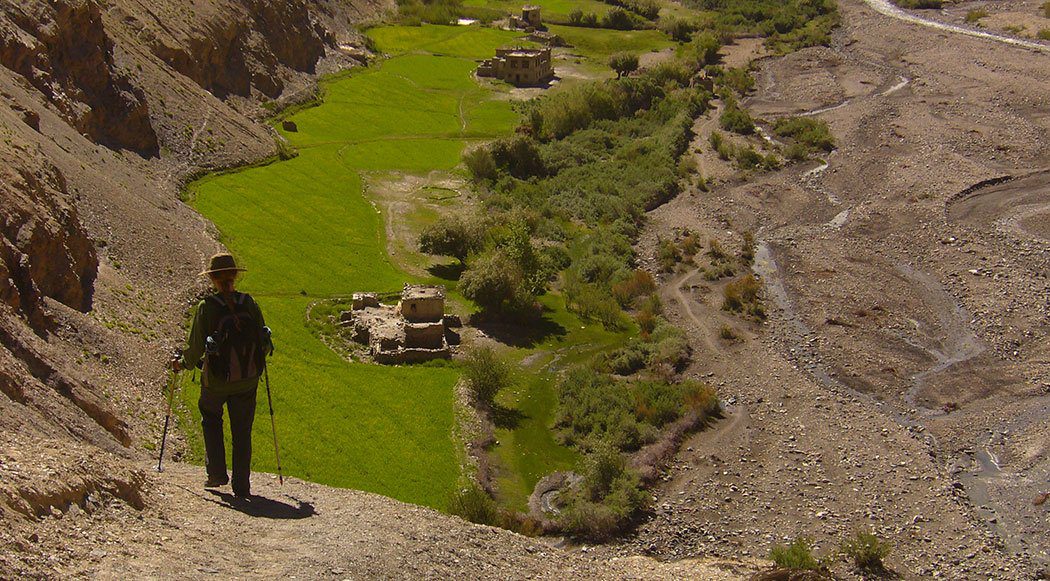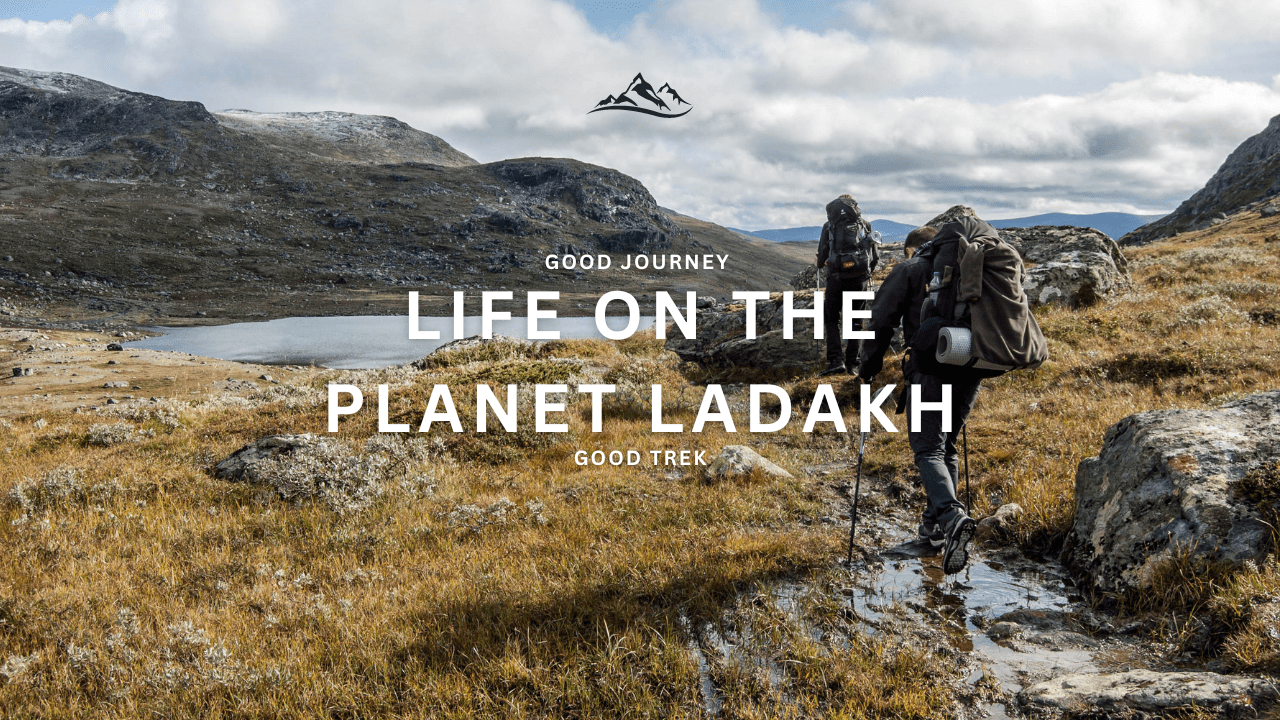Itinerary
8-Day Zingchen to Chokdo Trek via Kongmaru La
Day 1: Leh to Zingchen, trek to Yurutsey (4–5 hrs walk)
After breakfast in Leh, drive along the Indus and into the side valley of Zingchen, where the road fades into a dirt track and the trek begins. The trail follows a gentle river, entering the Hemis National Park with its rugged cliffs and scattered grazing grounds. As you gain height gradually, the views open up to small side valleys and colourful rock formations. By late afternoon you reach the tiny village of Yurutsey, set among fields of barley and willow trees, where you settle into a local homestay and get your first taste of Ladakhi village life.
Day 2: Yurutsey to Sku via Ganda La Pass (4,900 m, 5–6 hrs)
Today is your first big pass day. The path climbs steadily above Yurutsey, passing seasonal camps and high pastures before the final zigzags to Ganda La at around 4,900 m. From the top, prayer flags snap in the wind and you can enjoy wide views back towards the Indus valley and out to distant ranges. After a rest and photos, descend on a long, sometimes steep trail into the Markha Valley side, where the landscape softens into a narrow gorge. By evening you arrive in the village of Sku, with its fields, whitewashed houses, and a warm welcome from your homestay hosts.
Day 3: Sku to Sara (4–5 hrs)
Leaving Sku, you follow the Markha River downstream and upstream alternately, walking on a mix of riverbank paths, narrow ledges, and easy tracks through fields. The valley widens and narrows in turns, with impressive rock walls, small stupas, and occasional side canyons. Today’s walk is moderate, giving your body time to adjust to the altitude after Ganda La. You reach the quiet village of Sara by mid-afternoon, where you can relax with tea in the sun, wander through the fields, or simply sit and listen to the sound of the river.
Day 4: Sara to Markha (3–4 hrs)
This is a shorter, gentler day that lets you enjoy the rhythm of the Markha Valley. The trail crosses simple bridges, passes mani walls and chortens, and offers views of snow-dusted peaks appearing at the head of the valley. You reach Markha, the largest village in this part of the valley, in time for lunch or an early afternoon arrival. Here you can explore the old monastery, visit a ruined fort on the hillside, or just stroll through the lanes and talk with your hosts about life in the valley through the seasons.
Day 5: Markha to Thochungtse (6–7 hrs)
From Markha, the landscape begins to feel wilder and more remote. The path leaves the denser settlements behind and follows the river towards higher pastures, with Kang Yatse slowly coming into view ahead on clear days. You pass small hamlets, mani walls, and grazing areas used in summer, with fewer signs of permanent habitation. The final stretch climbs more steadily to reach Thochungtse, a cluster of seasonal shelters and simple homestays near grazing grounds. This is a transitional camp between the cultivated valley and the high-altitude world above.
Day 6: Thochungtse to Nimaling (4–5 hrs)
Today you enter one of Markha Valley’s most beautiful high plateaus. The trail continues to climb, passing a small lake and open meadows that are used by shepherds in the summer months. As you gain height, the air grows thinner but the views become wider: Kang Yatse rises above you, and the surrounding ridgelines stretch in every direction. You arrive at the broad pastures of Nimaling, a classic high camp at around 4,700–4,800 m, where yaks, sheep, and horses graze in short summer. Overnight at a simple camp or homestay-style shelter with unforgettable mountain panoramas.
Day 7: Nimaling to Chokdo via Kongmaru La Pass (5,200 m, 7–8 hrs)
Your second major pass and the high point of the trek. From Nimaling, the trail climbs steadily towards Kongmaru La, winding across rocky slopes and scree. The final steps to the pass at about 5,200 m are slow but rewarding, with a curtain of prayer flags marking the crest. On a clear day, you can see ranges stretching towards Zanskar and the Karakoram. After soaking in the views, you begin a long, sometimes steep descent into a dramatic gorge carved by the river. The trail crosses the stream multiple times and passes through narrow, colourful rock walls before eventually opening out near Chokdo, where a vehicle meets you. Overnight in a guesthouse or homestay in the area, depending on your chosen plan.
Day 8: Chokdo to Leh (2 hrs drive)
After breakfast, drive back to Leh along the Indus valley, watching the high, wild country you crossed fade into the distance. You return to your hotel in Leh by late morning or around midday, with time to rest, enjoy a hot shower, and celebrate the completion of your Zingchen to Chokdo trek via Kongmaru La. The rest of the day is free for café-hopping, last-minute shopping in Leh’s bazaars, or simply doing nothing at all.
